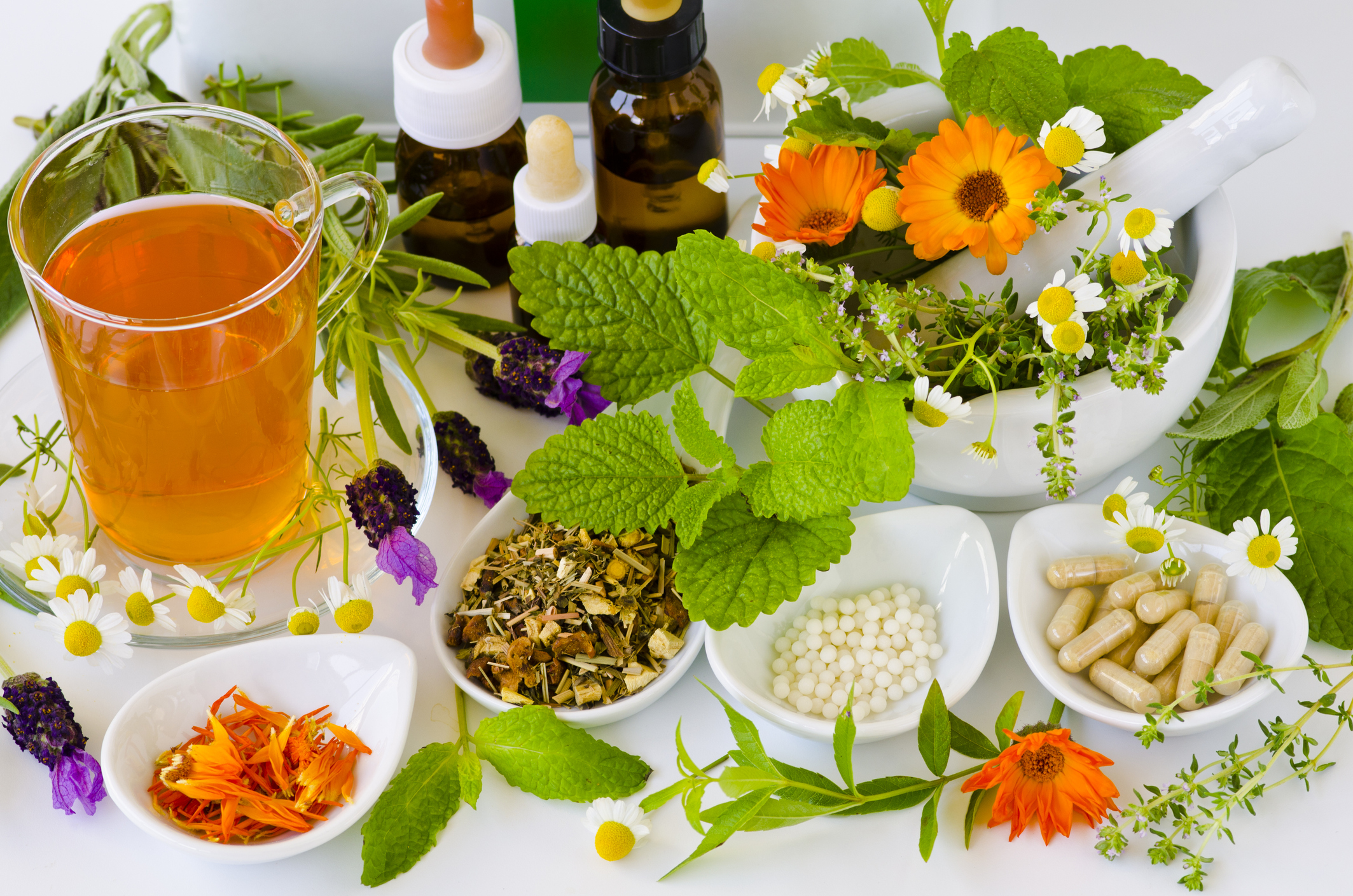Exercise Daily – In a world dominated by pharmaceutical drugs and conventional medicine, there is a growing interest in exploring alternative approaches to health and wellness, such as herbal products. These natural remedies have been used to treat various ailments for centuries in traditional medicine systems across the globe, including Ayurveda and Chinese herbal medicines. For instance, medicinal herbs like turmeric and ginger are especially effective due to their anti-inflammatory properties, often used in maintaining health and treating conditions such as arthritis and the common cold.
A meta-analysis of clinical trials of herbal preparations reveals that certain herbal interventions can effectively treat ailments that conventional medicines target, such as rheumatoid arthritis. However, it is crucial to consult with a healthcare provider before taking any herbal medicines, as they can interact with prescription medicines. It may increase the risk of adverse effects if not properly managed.

Herbal Medicine
The efficacy of herbal medicine products is supported by experimental and clinical evidence, though the quality and outcomes of controlled trials vary. Herbal ingredients listed on the label may not always match the contents, making sourcing medicinal herbs and sharing sensitive information about their use important. Traditional herbal remedies, such as those found in homeopathy and other complementary and alternative medicine, contribute significantly to primary health care in many cultures.
Herbal Medicine
Herbal medicine, also known as botanical medicine or phytotherapy, is the practice of using plant-based remedies for the prevention and treatment of various health conditions. It is a form of traditional medicine that has been passed down through generations in different cultures. Herbal remedies are derived from different parts of plants, including leaves, flowers, stems, and roots, and are prepared in various forms, such as teas, tinctures, extracts, or capsules.
Medicinal Plants and Their Active Ingredients
Medicinal plants are the cornerstone of herbal medicine. These plants contain bioactive compounds that are responsible for their therapeutic properties. Each plant has its unique combination of active ingredients contributing to its medicinal effects. For example, St. John’s Wort is known for its antidepressant properties, while Ginkgo Biloba is believed to enhance cognitive function. Understanding the active ingredients in medicinal plants is crucial for harnessing their healing potential.
Traditional Medicine and Herbal Therapies
Traditional medicine systems, such as Traditional Chinese Medicine (TCM) and Ayurveda, have long recognized the power of herbal therapies. These systems integrate herbal remedies with other modalities like acupuncture and massage to restore balance and promote well-being. The use of herbal medicine in traditional medical systems is rooted in centuries of observation and experimentation, providing a wealth of knowledge on the effectiveness of these remedies.
The Rise of Herbal Supplements
In recent years, herbal supplements have become a convenient way to incorporate medicinal plants into daily life. These supplements are available in various forms, including capsules, tablets, powders, and extracts. They are often standardized to ensure consistent levels of active ingredients and provide a convenient alternative to raw herbs.
The Scientific Evidence
Clinical Research on Herbal Medicine
While traditional medicine has relied on anecdotal evidence and historical usage, modern science seeks to validate the efficacy of herbal medicine through rigorous clinical research. Clinical trials involving herbal remedies aim to assess their safety, effectiveness, and potential interactions with conventional medicine. These trials often involve randomized control groups and placebo-controlled studies to ensure reliable and unbiased results.
Herbal Medicine and Health Conditions
Numerous studies have explored the use of herbal medicine for various health conditions. For example, a systematic review of clinical trials found that the herbal supplement Saw Palmetto may be effective in relieving symptoms of benign prostatic hyperplasia (BPH), a condition commonly affecting older men. Similarly, certain herbal remedies have shown promise in managing premenstrual syndrome (PMS) and irritable bowel syndrome (IBS).
Interactions with Conventional Medicine
One important aspect of herbal medicine is understanding its potential interactions with conventional medicine. Some herbal remedies can interact with prescription medications, leading to adverse effects or reduced efficacy. For instance, St. John’s Wort, a popular herbal remedy for depression, may interact with certain antidepressant medications, potentially altering their effectiveness. It is crucial to speak to your doctor or pharmacist before combining herbal remedies with prescription drugs.
Safety and Regulation of Herbal Medicines
The safety and regulation of herbal medicines vary across different countries. In the United States, the Food and Drug Administration (FDA) regulates herbal supplements as dietary supplements. However, unlike prescription drugs, herbal supplements do not undergo the same rigorous testing and approval process. It is essential to be cautious when buying herbal medicines and look for reputable brands that provide transparent information about their products.

Buying Herbal Medicines
Ensuring Safety and Quality
When purchasing herbal medicines, ensuring their safety and quality is essential. Here are some guidelines to consider:
- Look for reputable manufacturers: Choose products from trusted companies that adhere to good manufacturing practices.
- Check for certifications: Look for certifications such as the Good Manufacturing Practice (GMP) seal, ensuring the product meets quality standards.
- Read the label: The label should provide detailed information about the ingredients, dosage, and any potential precautions or warnings.
Consulting a Healthcare Professional
Before starting any herbal remedy, it is advisable to consult with a healthcare professional. They can offer personalized advice based on your specific health condition, medications, and potential interactions. Healthcare professionals, such as doctors, pharmacists, or herbalists, can guide you in choosing the right herbal medicine for your needs.
Potential Risks and Interactions
While herbal remedies are generally considered safe, they can still pose risks and interact with other medications. It is crucial to be aware of the following:
- Allergic reactions: Some individuals may have allergies to specific herbs or plants. Before using herbal remedies, it is essential to be aware of any potential allergies.
- Interactions with medications: Certain herbal supplements may interact with prescription medications, affecting their efficacy or causing adverse effects. Always inform your healthcare provider about any herbal remedies you are taking.
The Future of Herbal Medicine
As interest in natural remedies continues to grow, so does scientific research in the field of herbal medicine. The World Health Organization recognizes the importance of traditional medicine and its integration into primary healthcare systems. Ongoing research explores the potential benefits of herbal remedies in treating various health conditions.
FAQs – The Science Behind Natural Remedies
Q: Are herbal medicines safe and effective?
A: The safety and effectiveness of herbal medicines depend on various factors, including the specific herb, dosage, and individual’s health condition. While many herbal remedies have a long history of safe usage, consulting with a healthcare professional before starting any herbal treatment is important.
Q: Can I take herbal supplements while on prescription medications?
A: It is crucial to consult with your doctor or pharmacist before combining herbal supplements with prescription medications. Some herbal remedies can interact with certain drugs, potentially causing adverse effects or reducing the effectiveness of the prescribed medication.
Q: How can I ensure the quality of herbal medicines I buy?
A: When buying herbal medicines, look for reputable brands that adhere to good manufacturing practices. Check for certifications and third-party testing to ensure the quality and purity of the products. It is also advisable to consult with a healthcare professional or herbalist for guidance.
Q: Are there any side effects associated with herbal remedies?
A: Like any form of medicine, herbal remedies can have side effects, although they are generally less common than conventional drugs. Some individuals may experience allergic reactions or digestive disturbances. Monitoring your body’s response and discontinue use if any adverse effects occur is essential. Consult a healthcare professional if you have any concerns or experience persistent side effects.
Q: Can herbal medicine cure serious health conditions?
A: While herbal medicine can offer support and relief for certain health conditions, it is important to approach it with realistic expectations. Herbal remedies may help manage symptoms and promote overall well-being, but they may not provide a cure for serious or chronic diseases. It is best to integrate herbal medicine as part of a holistic approach to healthcare.
Conclusion
The science behind natural remedies, particularly herbal medicine, is a fascinating field of study. Through clinical research and a deeper understanding of medicinal plants and their active ingredients, we are uncovering the therapeutic potential of herbal remedies. However, it is crucial to approach herbal medicine cautiously, considering factors such as safety, potential interactions with conventional medicine, and the quality of products. By combining the wisdom of traditional medicine with scientific evidence, we can harness the power of natural remedies for our well-being.




